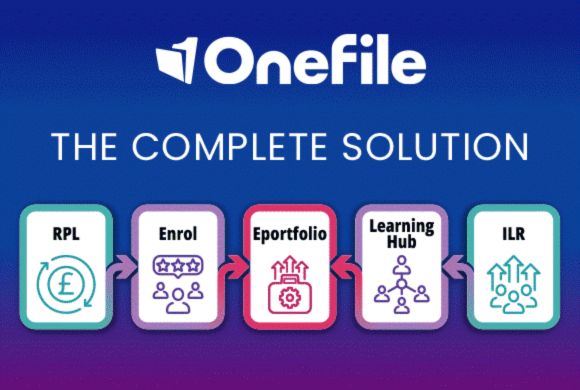The future of accounting: how are digital technologies reshaping the industry?

New digital technologies such as automation, AI, data analytics and apps that connect to accounting software are becoming increasingly critical for accounting and finance professionals. Finance roles and functions now incorporate a magnitude of new digital products, finance-related software, and novel forms of digital-based customer communication and interaction.
Benefits include the potential to improve efficiency, reduce time spent, give a competitive advantage, create additional revenue streams, and improve recruitment and retention. Businesses that do not adopt these digital technologies risk falling behind.
Louisa Matheson, Digital Programme Manager at accountancy training firm First Intuition, shares six ways digital technologies are reshaping the finance industry.
1. Technology will support, not replace, accountants
Automation is enabling accountants to have more impact as it helps drive efficiency, eliminates time-consuming tasks such as data entry, and reduces the opportunity for human error. These benefits are widespread across the whole profession as they can be implemented in a range of accountancy and finance roles. It also allows for the opportunity to partner with IT experts to maintain and support such automation systems.
2. Accountants will be able to offer more value
In addition to internal efficiency gains, accountants can then create value through analysis and insight, forecasting and storytelling, leading to data driven decision making. This opens up opportunities for new roles, skills, and competitive advantage for businesses that adopt the right technologies. However, it has equally created a space for businesses to lose their competitive edge, staff, and clients if they do not keep up with these ever-changing technologies.
3. New ways to present data and tell the story
Data visualisation is an exciting area and such tools offer accountants the opportunity to present their information and findings in new and creative ways. These can better illustrate results, aid analysis and assist in storytelling, leading to more effective decision making. Whether it is a client report or an internal analysis, these tools can shape the way businesses use, manipulate and present data. This can help produce clearer, more detailed, and more advanced findings which in turn can give competitive advantage.
4. Accountants’ skillsets are evolving
Digital technologies have widened the skills a finance professional can develop. Skills in digital technologies such as data analytics, automation and coding can assist accountants in working more effectively, efficiently, and powerfully. However, it is not necessary for accountants to develop all of these skills, as companies can partner with others with such skill-sets. What is more valuable is to have an understanding and openness towards these new opportunities. Accountants need to know how to ask the right questions to solve the right problems. They need to understand the problem and how digital technologies can help them.
5. Recruitment and retention techniques are changing
As more tech-savvy young adults enter the workforce, they bring new ways of working and employers may find a generational divide. Those who have limited digital adoption may find it more difficult to attract younger staff, whilst those that have embraced digital adoption may struggle to employ older and more experienced accountants that are unfamiliar with using these technologies, again emphasising the importance of an open mindset to these new opportunities. With the widening skills sets that employers are increasingly looking for, it can attract more people to a career in accountancy and finance as employers look for digital and data skills in addition to finance and management skills.
6. An understanding of digital technologies is essential
A major obstacle for organisations adopting digital technologies is deciding where to start. There are so many different technologies that it can be difficult for businesses to know what and where to focus their efforts. Furthermore, resistance from finance professionals who have not had to use digital technologies before and do not understand them can block adoption further. But to stay competitive it is increasingly necessary to adopt. Businesses that will benefit most are those that understand what they are trying to achieve before they decide which technology is going to work best for them. Figuring out what problem needs to be solved, what skills are needed to solve it and how digital technologies can help them will facilitate the most appropriate and effective adoption.
To help accounting and finance professionals gain a better awareness of the digital technologies in the finance space, the impact they are having on the business environment, and how they can help businesses, First Intuition, in partnership with Generation CFO, has designed and developed two new programmes:
This programme provides a broad overview of the latest trends in accounting and finance technology, and the opportunities they offer to accounting and finance professionals. The course is designed to be a non-technical programme and provides a good starting point for accountants to build awareness across the increasingly important area of digital finance.
This programme goes deeper into each capability of Data Analytics, Advanced Analytics and Data Visualisation, including looking at their methods, skills and tools. This is a non-technical programme but includes guidance for further technical learning and learning pathways. The course is designed for those wishing to progress from the Awareness of Digital Finance programme to focus on data analytics.
Find more information about First Intuition’s Digital Technologies and Data Analytics courses here.














Responses